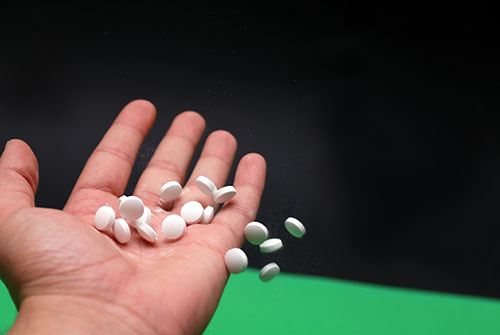 Modern medicine has made opioid withdrawal much more bearable with the drug suboxone.
Modern medicine has made opioid withdrawal much more bearable with the drug suboxone.
Many people in the United States are struggling with an addiction to opioids. Street heroin and legal narcotic painkillers like Hydrocodone, Oxycodone, and Fentanyl are the most popular.
In the past, those who wanted to quit using these powerful substances had no other choice but to quit the stuff cold turkey. Thankfully, in the last decade, scientists and medical experts have been working hard to offer medicinal options that treat opioid addiction. Suboxone is a perfect example.
Those who are addicted to opioids know all too well that stopping the use of these drugs is no walk in the park. Withdrawal inevitably follows, which is painful and unpleasant – to say the least. Symptoms like nausea, vomiting, diarrhea, head-to-toe body aches, fever, and extreme cravings accompany the detox process. Also, it is important to note that withdrawal from opioids can be life-threatening. Seizures, coma, and death CAN happen during detoxification.
For these reasons and many more, doctors are now recommending medication-assisted therapy (also known as MAT) to those who are hooked on opioids. This allows users to take a medication like Suboxone as an opioid replacement.
What is Suboxone?
Suboxone contains two main substances called Buprenorphine and Naloxone. Buprenorphine is a partial opioid antagonist. It hits the same receptor sites in the brain affected by opioids and provides pain relief. However; the drug blocks the high typically associated with opioids. Naloxone is an opioid antagonist. It also blocks the high caused by opioids and prevents overdose.
This means that a user can take Suboxone and still receive the same effect of opioid drugs without catching a buzz. Without the high associated with opioids, people are much less likely to abuse them while still getting pain relief. Also, taking this medication instead of street heroin or prescription opioids is safer because it greatly reduces the chance of overdose.
Suboxone is either given in tablet form or by strips that dissolve under the tongue. Unlike Methadone, those who take this medication do not necessarily have to go to a clinic every day to receive their dosage. Quite often, Suboxone is prescribed as a take-home drug that is self- administered. However; this is up to the discretion of the prescribing doctor.
Why Should Someone Take Suboxone?
Many people who are addicted to opioids desperately want to stop taking them because their lives have become unmanageable. Addiction to these potent drugs can quickly get out of hand. Opioids are highly addictive and cause physical dependency. This means that someone needs to take them to function properly. Without them, they will go into withdrawal – which can be excruciating.
Suboxone allows someone with an opioid addiction to stop taking their drug of choice and get them on the path to recovery without fear of withdrawal. It greatly lessens withdrawal symptoms and reduces cravings. This makes it possible to find freedom from addiction.
Most people cannot stop taking opioids because the withdrawal process is simply too painful. When someone suddenly stops taking heroin or painkillers, they experience overwhelming cravings for the drugs because they are looking for the absence of pain. It is difficult for someone who is addicted to heroin, Hydrocodone, Oxycodone or Fentanyl to maintain long-term sobriety without the use of medications like Suboxone.
How Does Suboxone Work?
Suboxone is prescribed by a doctor to someone who is struggling with an opioid addiction. The doctor will manage dosage to ensure that someone is getting the right amount of opioids in their system without experiencing withdrawal. Then, slowly over time, the dosage is continually lowered until someone is completely weened off the medication and opioid free.
Someone who takes Suboxone should also undergo addiction treatment at the same time. Stopping the use of opioids and getting on Suboxone is just not enough to address the underlying addiction. Once a person has become addicted to any substance, they need to be educated about addiction and learn the necessary coping skills to enjoy long-term sobriety.

